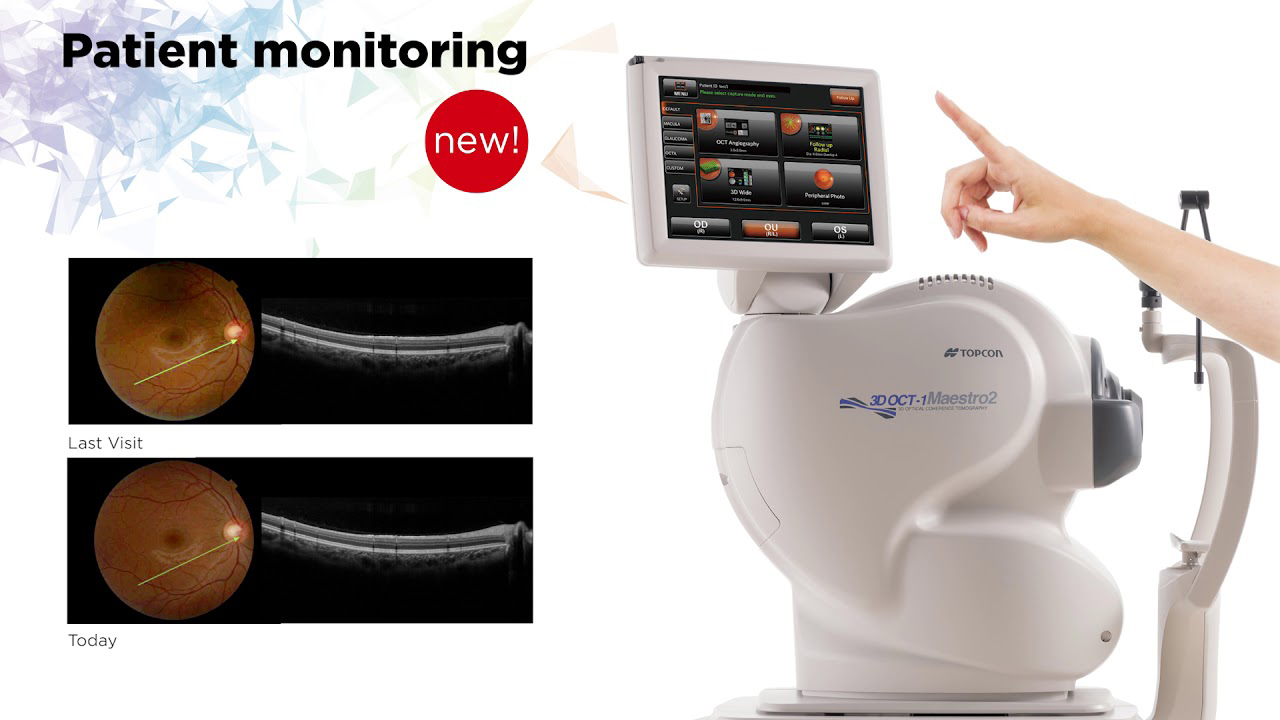What does an OCT scan do?
Many common eye diseases can creep up on you, without any significant symptoms. So, even if your vision and eyes appear perfectly fine, it’s useful for your optician to gain a full understanding of your overall eye health through additional tests.
In particular, an OCT scan can help to detect eye conditions like glaucoma, age-related macular degeneration and diabetic retinopathy. Your optician may recommend that you attend an OCT scan even when your eyes are healthy in order to provide a baseline image.
An OCT scan can help your optician to see what’s going on beneath the surface of your eye, providing a picture of the layers of your retina. Your optician can then map out the layers and measure the thickness. The optic nerve head is also visible at the back of your eye, so an OCT scan can also evaluate any disorders of the optic nerve.
How does an OCT scan work?
To simplify, we tend to compare your eye to a cake. Retinal imaging takes a photo of the surface of the retina (the top surface of a cake) whereas the OCT looks at the layers of the retina (like cutting a slice of cake and then being able to see the various layers within, one at a time).
OCT technology uses light waves to take images of your retina; similar to how an ultrasound scan uses sound waves. During an OCT scan, you will be asked to sit in front of a small machine with your chin placed on a support. The instrument can scan your eye without touching it.


